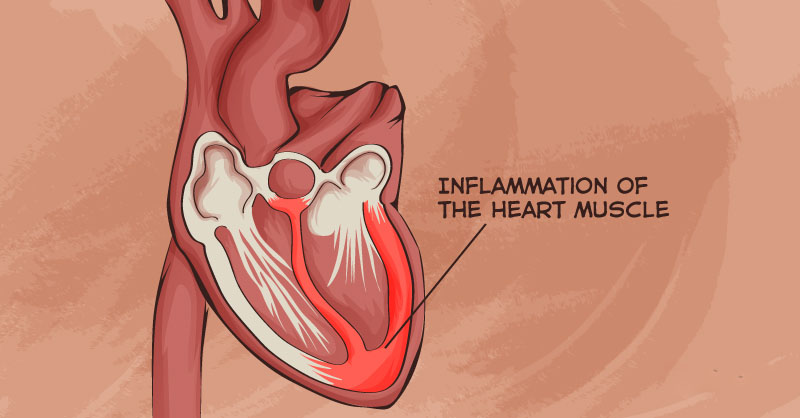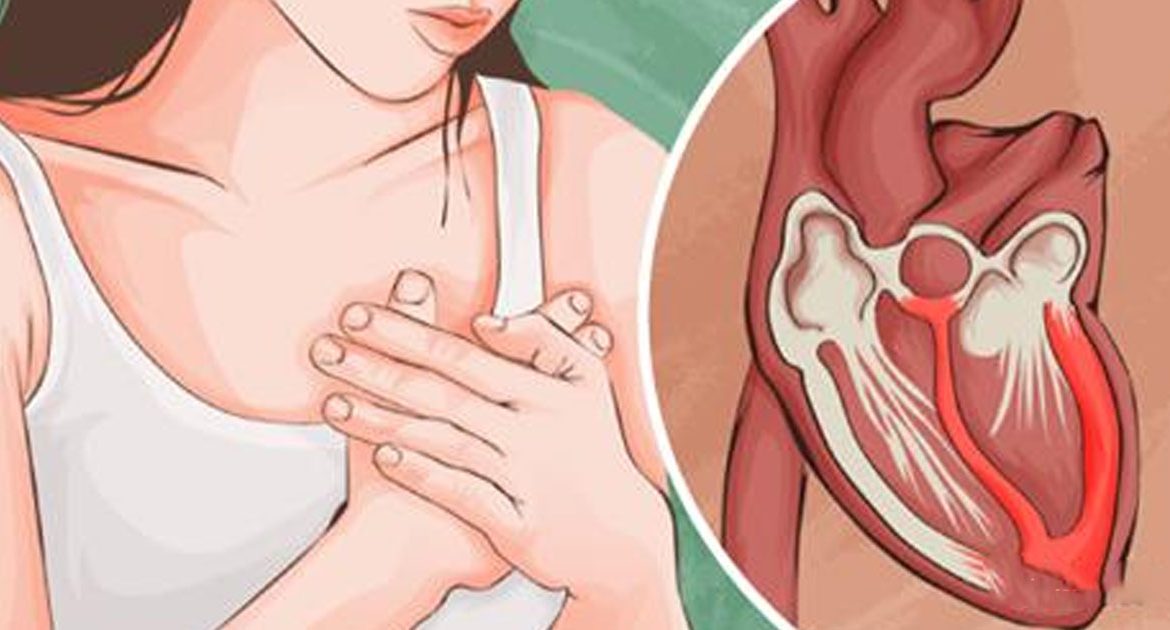What is myocarditis?
Myocarditis is inflammation of the heart muscle (myocardium). There are many factors that can lead to myocarditis, and it can affect anyone at any age. In some cases, myocarditis causes no symptoms and resolves itself over some time, but in other cases it can lead to serious complications, such as heart failure.

What are the symptoms of myocarditis?
Some people with myocarditis have no symptoms. But if symptoms are present, they usually include the following:
- chest pain;
- a fluttering sensation in the chest — a sign of arrhythmia);
- shortness of breath;
- fatigue;
- dizziness;
symptoms typical of an infection, such as fever, muscle aches, sore throat, headache, and diarrhea.
If you have symptoms described above, contact your doctor.
What causes myocarditis?

Many different factors can lead to the development of myocarditis. They include the following:
- Viruses are the most common cause of myocarditis, and the ones that cause it include adenovirus (causes the common cold), flu viruses, hepatitis B and C, echoviruses (cause gastrointestinal infections), Epstein-Barr virus (causes mononucleosis), rubella virus, herpes simplex virus, and HIV;
- Bacteria, such as staphylococci, streptococci, meningococci, clostridia, and others;
- Fungal infections, caused molds, yeasts, and fungi;
- Parasites, which include toxoplasma and Trypanosoma cruzi (causes Changas disease);
- Certain autoimmune conditions, such as lupus and rheumatoid arthritis;
- Chemotherapy and radiation therapy;
- Allergic or toxic reaction to medications, including antibiotics and anticonvulsants;
- Illegal substances, such as cocaine.
What are the possible complications of myocarditis?
Severe myocarditis can cause permanent damage to the heart muscle, which can lead to:
- heart failure;
- heart attack or stroke;
- arrhythmias;
- sudden cardiac death.

Is there a way to prevent myocarditis?
There’s no surefire way to prevent myocarditis, but there are measures that can reduce your risk of developing it:
- avoid people who have flu-like illnesses to avoid becoming infected;
- practice good hygiene, including regular hand washing;
- take measures to avoid tick bites – cover your skin when you’re in wooded areas and other places where ticks live, and apply repellent containing DEET;
- get all recommended vaccines.






